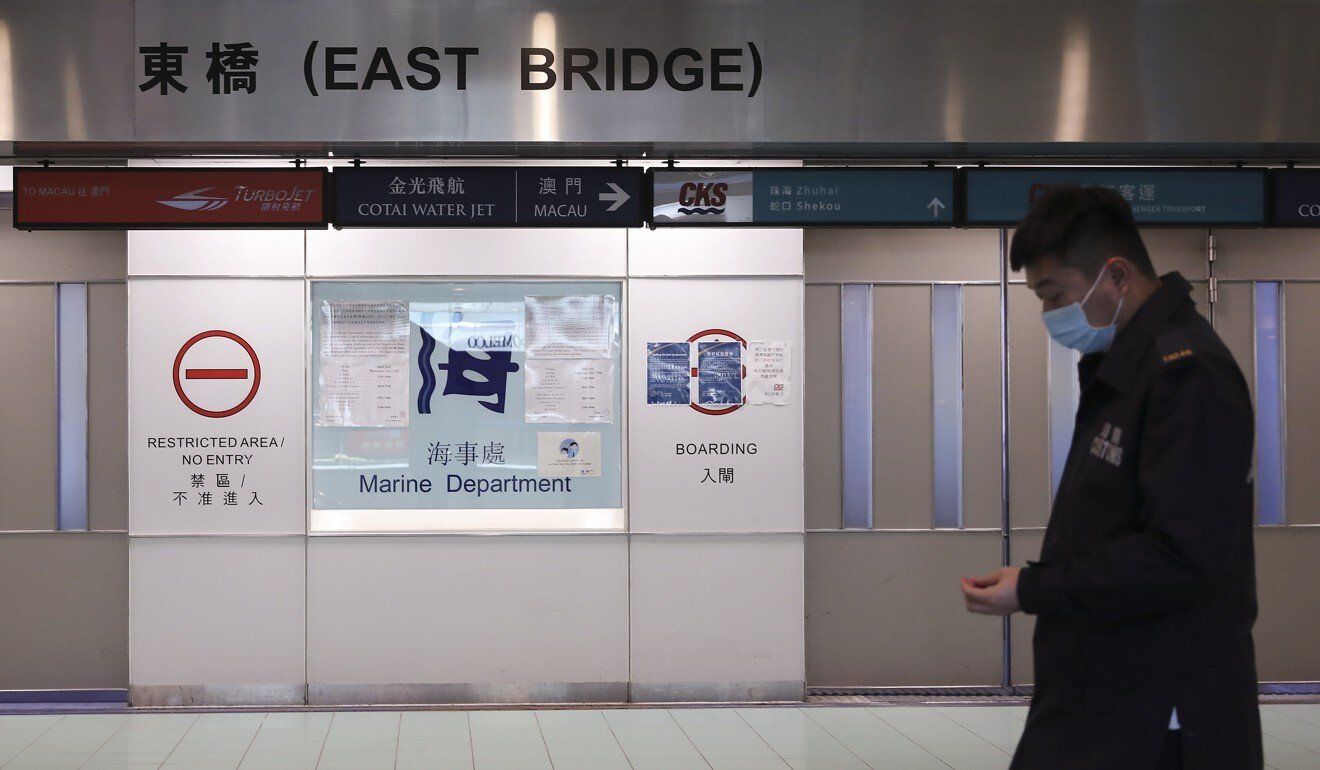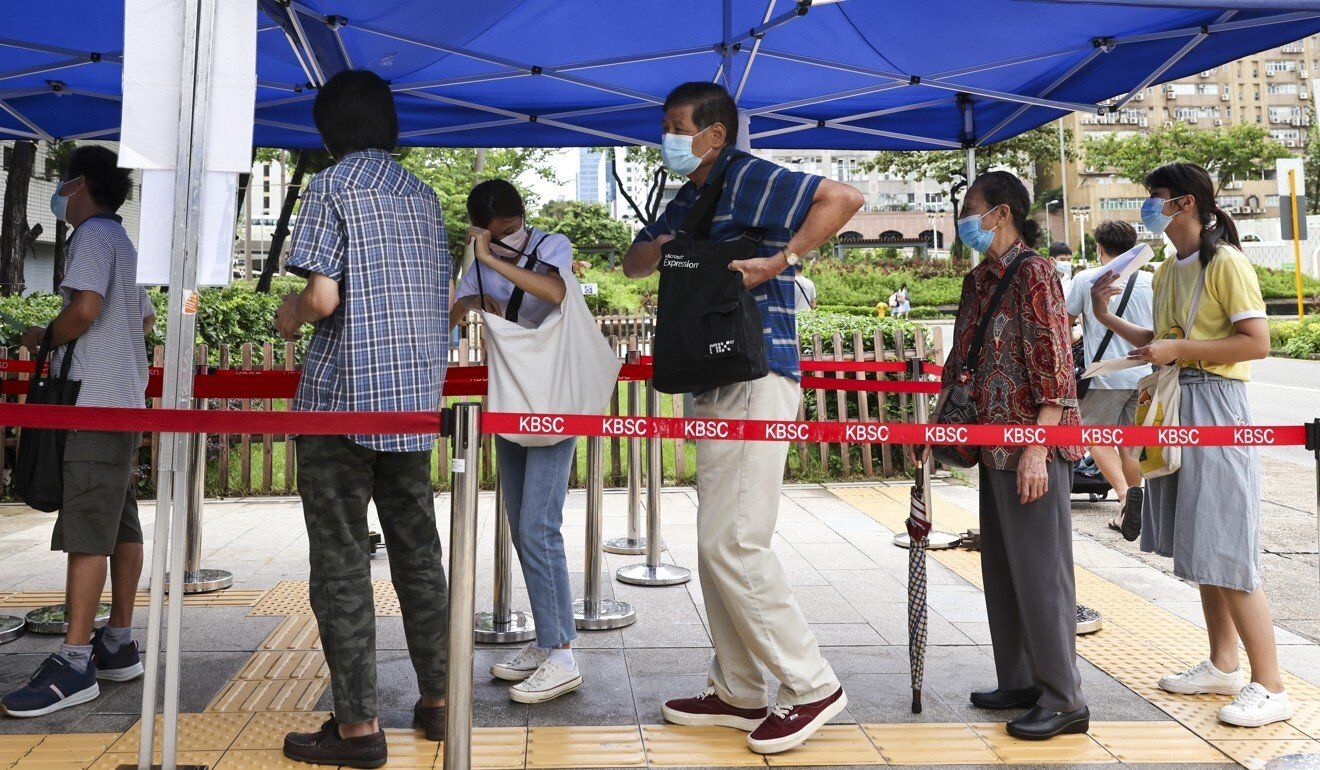A local pro-Beijing heavyweight has said boosting vaccinations could be a basis for resuming quarantine-free travel with mainland China soon, but a source across the border says the status quo is unlikely to change before March.
A higher Covid-19 vaccination rate and a sustained zero-infection streak are believed to be among the prerequisites for Hong Kong resuming quarantine-free travel with mainland China, experts and a pro-Beijing heavyweight say, but an official across the border has said the status quo is unlikely to change before March.
Local National People’s Congress Standing Committee delegate Tam Yiu-chung said on Wednesday that he was optimistic that getting 5 million people vaccinated by the end of the month would be enough to convince the central and Guangdong governments to relax the restrictions, even though authorities across the border have not set a concrete inoculation target for Hong Kong.
“We have reflected to the mainland authorities that our coronavirus cases are all imported cases, and we have stringent testing measures, while our vaccination numbers have also picked up. There could be a possibility of resuming cross-border travel,” he said.
However, a Guangdong government source with knowledge of discussions between Hong Kong and the mainland poured cold water on that assessment, saying he believed that March or April would be a more realistic timeline for an arrangement being reached, adding that the call was ultimately up to Beijing.
“The mainland is just recovering from the previous round of outbreaks,” the source said. “Now, with the politically sensitive October 1 National Day approaching and the Communist Party’s plenum in November, Beijing is hesitant to make the decision now as there is risk.”
Professor Zhong Nanshan, one of China’s top respiratory disease experts, had said in June that quarantine-free travel could resume as early as July if Hong Kong and its neighbouring province continued to “interact and monitor” the situation.
However, the situation has remained unchanged since then, and mainland authorities have declined to offer explicit criteria for reopening the border with Hong Kong. The city has tried to look for clues in parameters for resuming travel established by Macau, which has largely modelled its pandemic-control measures on the mainland’s.
But those parameters have proved similarly hard to pin down. An initial requirement that Hong Kong go 28 days without a local case was laid down in June, only to be revised to no fixed number of days the following month.
 Hong Kong has looked to Macau for clues as to the requirements for reopening the border.
Hong Kong has looked to Macau for clues as to the requirements for reopening the border.
The mainland side has been cautious so far about any reopening, and is concerned in particular about Hong Kong’s border-control measures and continued reporting of imported cases. The inability to track Hongkongers’ movements on the other side of the border also remains a major obstacle, as the city’s health code is not linked to the mainland’s because of privacy concerns.
Francis Fong Po-kiu, honorary president of the Hong Kong Information Technology Federation, said Hongkongers would probably be reluctant to submit to mainland-style tracking efforts. While using a third-party technology, such as the “Exposure Notifications” system developed by Apple and Google, could be a solution, he doubted the mainland would consider adopting that.
Without waiting for Beijing to reciprocate, Hong Kong has already moved to allow city residents arriving from the mainland and Macau to be exempted from quarantine through the “Return2HK” scheme.
Similar treatment is set to be extended to non-residents, including mainlanders and expatriates, arriving from Guangdong and Macau starting next Wednesday under the “Come2HK” scheme.
Hong Kong Chief Executive Carrie Lam Cheng Yuet-ngor said on Wednesday that she had proposed to Beijing that a dialogue be established between local and mainland medical experts to work towards the goal of resuming quarantine-free travel. A week ago, she declined to comment on speculation that the border would be reopened after the Beijing Winter Olympics in February.
Government pandemic advisers Yuen Kwok-yung and David Hui Shu-cheong said they had not received any invitation to take part in the proposed dialogue, but both agreed that a higher vaccination rate would put the city in a more favourable position.
“If everyone is vaccinated, [the border reopening] should be able to proceed,” Yuen said. “If the border reopens and social-distancing measures are relaxed, unvaccinated people are very likely to get infected.”
But setting a specific vaccination target “wouldn’t mean much”, he added, as everyone who was fit for the jabs should get them, target or no.
 People queue for their Sinovac Covid-19 jabs in Kowloon Bay earlier this month.
People queue for their Sinovac Covid-19 jabs in Kowloon Bay earlier this month.
Boosting the city’s vaccination rate has been a challenge, with the daily number of first doses administered dwindling to around 10,000 in recent days from roughly 30,000 in mid-August. The falling inoculation figures have cast uncertainty over whether the city can meet its initial goal of having at least 70 per cent of the population vaccinated by the end of September.
As of Wednesday, 4.28 million people, or 57 per cent of the city’s total population, had received at least one dose of a coronavirus vaccine.
The mainland, meanwhile, has already administered more than 2.1 billion doses of vaccine, with over 77 per cent of the population vaccinated. That being the case, Hui said, the mainland would probably demand a higher inoculation rate of Hong Kong as one of the requirements for reopening.
Both experts also agreed that maintaining a streak of zero local cases would be crucial.
“After we have achieved zero local infections, we will also need to maintain the status,” Yuen said. “We will need to let the mainland know that what we are doing is the same as what is being done across the border.”















